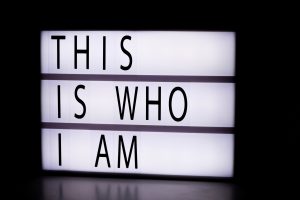Active listening is one of the fundamental skills to be a coach. A good listening skill allows to create a relationship with the client showing openness and warm presence. It is an important tool to establish a connection, to be in tune with clients’ emotions and welcome their words.
According the International Coach Federation: “Active Listening is the ability to focus completely on what the client is saying and is not saying, to understand the meaning of what is said in the context of the client’s desires, and to support client self-expression” (ICF Global).
Being a better listener is the first step to have conversations that drive impact, build relationships and ultimately create change in client’s personal and professional life. Listening is a powerful process; it is opening a neutral space, free from interference for both the coach and client. Within this space the client can open themselves freely, without being judged.
What does it mean to listen during a coaching session?

In my experience as a professional coach I have learned to listen actively shelving the ego and emptying my mind of any prejudices. I want to create a dialogue with the clients free of my personal self-interests and hypothesis. During a coaching session I mirror the clients’ words. This is to say that my aim is only to reframe their words without judgment or adding my opinions. The coach’s ability is to listen effectively, without judgement and with curiosity, providing a safe space in which clients feel heard. Clients freely express themselves. They can reflect on what is important to them and learn from experiences. This process increases their self-awareness to address their challenges.
I have always enjoyed listening to stories. This is related to my introvert nature and listening rather than speaking is my natural attitude. When I was a child, I loved the fairy tales. I was fascinated and captured by those words, by the characters that appeared in my mind. Nowadays, I don’t listen to fairy tales, but I listen to life stories, real stories in which people get involved, open their hearts and fight the challenges that life presents them. These stories disclose emotions, fears, achieved goals, challenges and silences full of unspoken words. Each story leaves me something: an emotion, a learning or an insight. Listening is my natural gift, the talent that expresses my being. I feel honored to possess this gift because it allows me to feel others’ emotions, to perceive people’s inner world. In every session I reconnect with that child part of me that is surprised and amazed by incredible stories.
How can you become a good listener?
My invitation is to think about the last time you felt heard:
- Which were your feelings?
- Who was the person with whom you shared this moment?
- What did allow you to feel free to express your thoughts?
This is an exercise to understand when you really connect with the hidden part of yourself and what allows you to bring it out and share it with others. To listen to others, you must first know how to listen to yourself.
How you can create a frame of a good conversation?
Listening is an active search for meaning and connection with the other person. Active listening is to be mentally and physically present to listen to what others are saying and clarifying the messages meaning. Next time you have a conversation with someone try to set your intentions and think about these rules.
- Listen with the intent to understand, not just to reply.
- Ask questions to clarify your understanding. When you hear something that could be interpreted multiple ways or it isn’t clear, you need to clarify this point to be sure that you understand the real intent.
- Summarize the meaning back to the other person.
This technique improves your listening skills. It’s important to summarize the critical points of what was said. But when you reflect what it means back to the other person, this makes feel the other heard and understood at a much deeper level.








